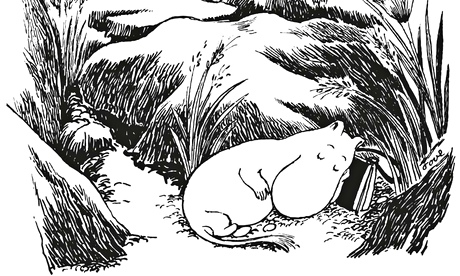
My friend's daughter is a keen and able reader aged nine, but is significantly limiting her book choices because she won't read books where there are children who have lost parents, ill parents or where there is sadness or badness, as she finds it too traumatic. She has been finding it really hard to find decent literature which doesn't cover this. For example, she has just rejected Sally Gardner's I Coriander (recommended by lots of friends) as she was too upset by rule breaking in it, where Coriander tries on the glass shoes when her mother has clearly told her not to, and the suspense has been built about there then being 'bad things going to happen to her'.
Any recommendations would be much appreciated.
Given the best-selling status of Francesca Simon's Horrid Henry series it could be thought that your friend's daughter is alone in feeling uncomfortable with fictional tearaways. But she is not. While some love Henry or Richmal Crompton's William Brown, hero of Just William or Dorothy Edwards' much younger eponymous My Naughty Little Sister, others find them alienating.
These readers are unwilling to enter into the turbulent adventures of such characters because they fear and are embarrassed by the consequences of their actions and hate the resolution whether these bad kids of fiction get away with it or are punished.
Where this nine-year-old may be more unusual is in not liking any sadness or missing parents. Missing parents and other kinds of sadness around loss or neglect are an ever-present thread running from fairy stories onwards and most children learn to make a distinction between "real" and "make-believe" and so protect themselves from feeling the pain of the story too much.
Instead, they use these kinds of stories to enjoy risk safely knowing that they can walk away from it. The way children relate to the story of Max in Maurice Sendak's Where the Wild Things Are is a good example of this. They are usually also afforded a certain amount of protection the typically hopeful endings of children's books (this year's winner of the CILIP Carnegie medal excepted.
But stories where all is good and nothing challenging takes place are hard to be excited about; jeopardy and resolution are the stuff of fiction. One way round the difficulty might be to go for books without humans which may make the pain of the experience less bad.
Tove Jansson's Moomins are some of the most likeable and benign characters in fiction. One of the best-loved titles about them, Finn Family Moomintroll is even called The Happy Moomins in some editions. Their many adventures in Moominland are full of anticipation and sometimes a bit of anxiety but they are never really scary.
Humour can also help an anxious reader. Philip Reeve and Sarah McIntyre's Oliver and the Seawigs is a deliciously wild adventure with some wonderfully invented characters.
For a brave, good and true character at the centre of a tremendous adventure, Philip Pullman's The Firework Maker's Daughter provides a splendid example. Lila's ambition to become a firework maker looks like being thwarted until her bravery and intelligence show that she is, without doubt, worthy of the role. Lila takes risks but nothing that she takes on is too frightening and her luminous and attractive personality character ensures readers will follow her trustingly.
Enjoying books with your babies and younger children? Why not think about becoming one of our family reviewers and sharing the books you love? We are now doing this as a monthly Witness project feeding into our family review galleries – check out July's family reading project.
Do you have a question for the Book Doctor? Email childrens.books@theguardian.com or pose your question on Twitter @GdnchildrensBks using #BookDoctor.

